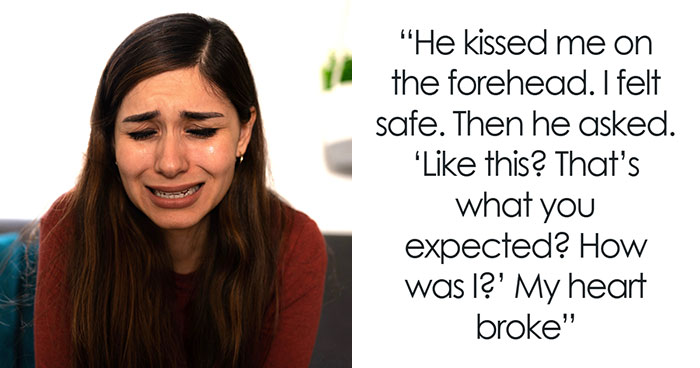
Woman Goes Viral With 50 ‘Socially Acceptable’ Things In The UK That Would Confuse Americans
InterviewDespite a long history, shared language, and “special relationship,” the UK and the US are still pretty different, very often in ways that do not immediately meet the eye.
TikToker Andrea Celeste shared some examples of things in the UK that Americans might find surprising. Viewers shared their own thoughts in the comments, highlighting all the bits of life, from stores to humor, that differ between the two nations. We got in touch with British/Polish singer, actor, and comedian Maja Bloom to learn more.
Bored Panda has reached out to Andrea Celeste for comment by email and will update the article as soon as she gets back to us.
More info: TikTok | Instagram | Twitter
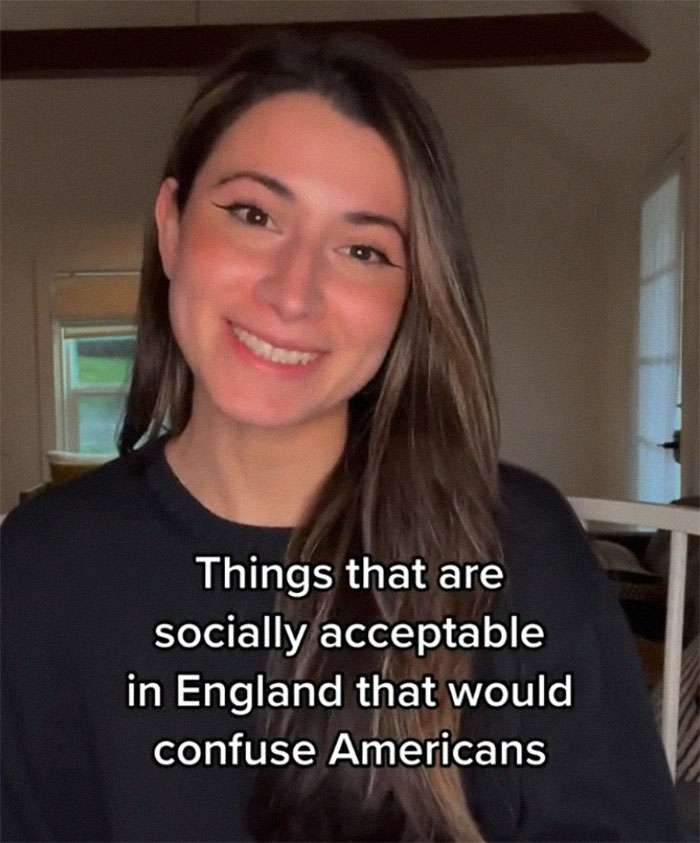 Image credits: nndreacelleste
Image credits: nndreacelleste
This post may include affiliate links.
 Advertising prescription only medicine is actually prohibited in England. Also in England, you don't get billboards that advertise solicitors like you would in the US.
Advertising prescription only medicine is actually prohibited in England. Also in England, you don't get billboards that advertise solicitors like you would in the US.
 There isn't the same beauty pageant culture as there is in the US in England, especially when it comes to kids with makeup, fake tan and bikinis.
There isn't the same beauty pageant culture as there is in the US in England, especially when it comes to kids with makeup, fake tan and bikinis.
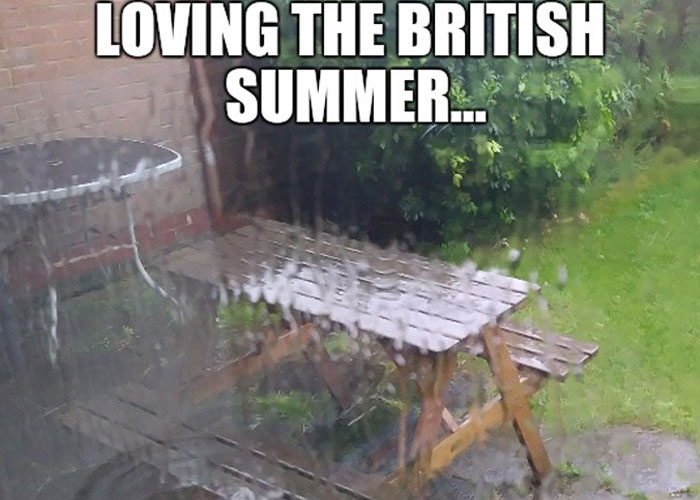 Pessimism and self deprecating humor. When I use British self deprecating humor people sometimes tend to get worried and start saying something supportive when I'm back in the US. In the UK humor is usually self deprecating and pessimistic. And in the US while it's still banter, it's more lighthearted and usually obviously a joke compared to the banter you get in the UK.
Pessimism and self deprecating humor. When I use British self deprecating humor people sometimes tend to get worried and start saying something supportive when I'm back in the US. In the UK humor is usually self deprecating and pessimistic. And in the US while it's still banter, it's more lighthearted and usually obviously a joke compared to the banter you get in the UK.
Bored Panda got in touch with Maja Bloom, a comedian, actor, and singer from the UK and she was kind enough to share her thoughts on British humor and how it compares to other parts of the English-speaking world. “I think one of the main characteristics of British humor is that there are no sanctities - you can make jokes about absolutely everything: dead disabled children? Yeah, why not, queen dying, pedophiles, I mean anything.”
“Sometimes, some events (like e.g. recently the queen's death) carry some kind of a time embargo where people wait a few days/ weeks before starting to make jokes about it (but that is connected to how powerful royal family and upper class still is, and that is a completely different story, wink wink ;-)), but I remember attending a stand-up event right after she died and comedians were already making jokes about it. I think this is linked to a very British way of dealing with problems and difficult traumatic things: laugh everything off. You have cancer? laugh about it, you are broke - make jokes about it. You might say we tend to avoid talking about serious issues, and solving them, and instead laugh about them.”
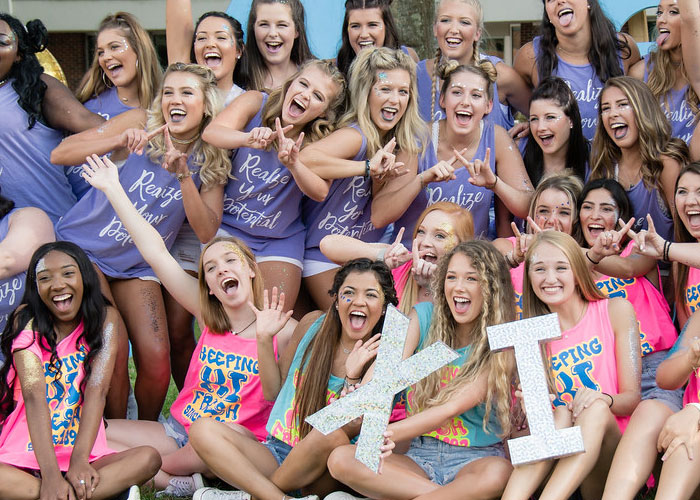 There aren't any fraternities or sororities at UK universities. A lot of people in the UK call University "uni".
There aren't any fraternities or sororities at UK universities. A lot of people in the UK call University "uni".
I wish fraternities and sororities would disappear. They sound dangerous.
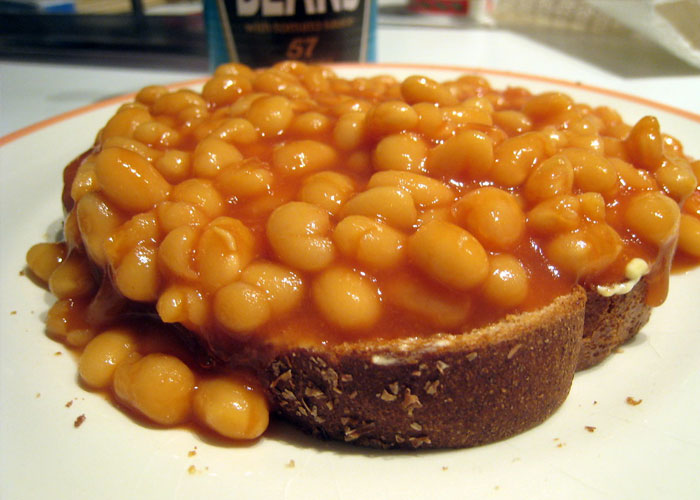 I saw this thing about American seeing a photo of beans on toast and being mortified by it and to be fair, it looks terrible in photos but it's actually really good snack when you're trying to save money.
I saw this thing about American seeing a photo of beans on toast and being mortified by it and to be fair, it looks terrible in photos but it's actually really good snack when you're trying to save money.
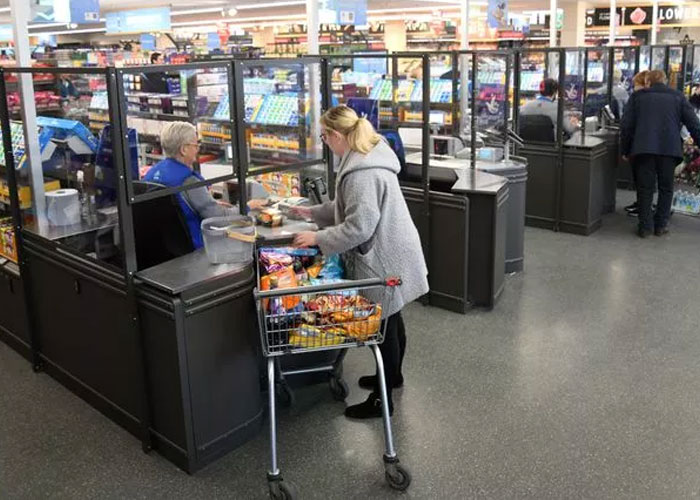 People pack their own groceries in supermarkets. There isn't anyone that packs it all for you at the end of your shop.
People pack their own groceries in supermarkets. There isn't anyone that packs it all for you at the end of your shop.
Normal in the Netherlands too. I really don't need anyone to pack my groceries for me. I can perfectly do that myself. Bringing my own bags too. Saves a ton of money on labour too...as groceries are expensive enough already.
“You might say that is not very practical or helpful, and you would be right, but I guess that is the way many people in Britain deal with the most difficult and painful aspects of their lives: not dealing with them head-on, but via a joke so you "laugh until you cry and cry until you laugh". Or maybe it is stimulating change by laughing about issues? I was born in communist Poland and came to the UK for the first time when I was 17.”
“In communist Poland, Monty Python, which many would say is untranslatable, was super popular. Why? In a communist regime, you could not openly criticize certain institutions, but you could laugh at them and mock their absurdities, which is exactly what the Orange Alternative movement from my first home city of Wroclaw did, as you can see here. It is what Ali G did as well - you create content that is ridiculously funny but at the same time asking important questions about the world and making you realize that perhaps certain things should change,” she shared with Bored Panda.
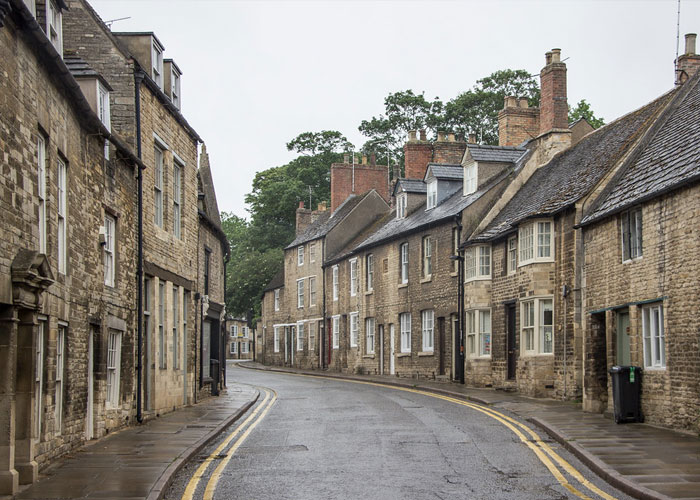 A 20 minute walk anywhere in England isn't that long of a distance and you wouldn't typically take an Uber for that kind of distance. I feel like in the US it's more common to take Ubers everywhere probably because everything's so spread out.
A 20 minute walk anywhere in England isn't that long of a distance and you wouldn't typically take an Uber for that kind of distance. I feel like in the US it's more common to take Ubers everywhere probably because everything's so spread out.
In the Netherlands, we walk that too. Nothing to do with Ubers being there or not. It is just common sense and healthy and cheap. Or we do it by bike ;)
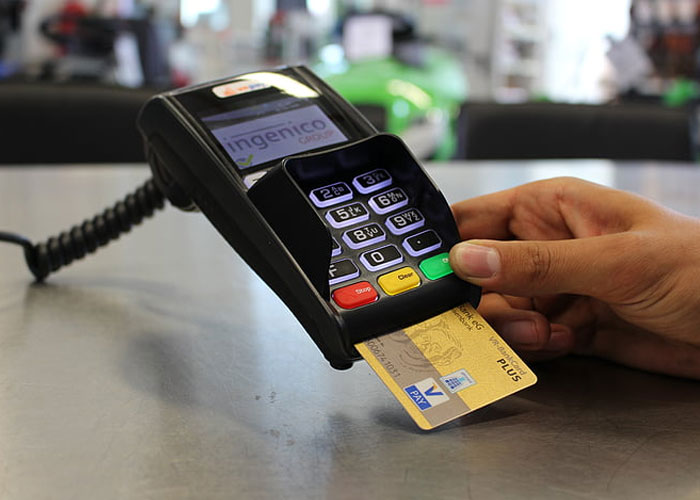 You don't tip bartenders in the UK and the overall tipping culture is very different. There's tipping at restaurants, but I think it just depends on the person and also where you are in England.
You don't tip bartenders in the UK and the overall tipping culture is very different. There's tipping at restaurants, but I think it just depends on the person and also where you are in England.
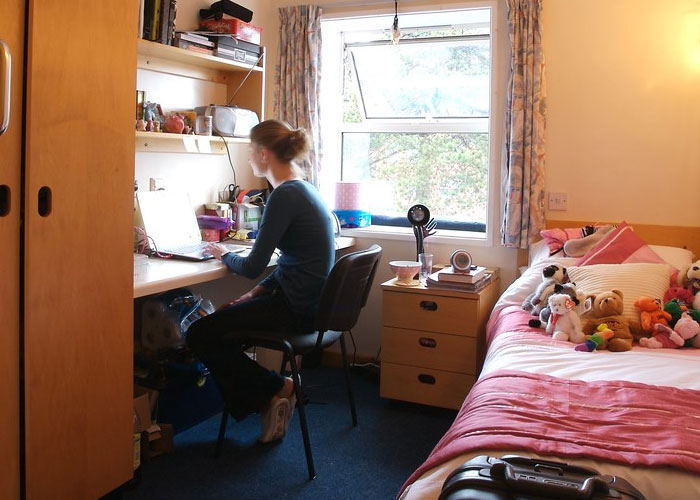 At university you won't have roommates in England, you'll have housemates. Typically halls have separate bedrooms and shared kitchens and bathrooms. But I think in US dorms, it's common to share your actual bedrooms.
At university you won't have roommates in England, you'll have housemates. Typically halls have separate bedrooms and shared kitchens and bathrooms. But I think in US dorms, it's common to share your actual bedrooms.
Room sharing used to be more common in the UK, but accommodation built from the 70's onwards is usually single rooms. I did share a room in my first year (1985-6) but I was in an old Victorian house that was an annex to a more modern hall of residence (c1970's) that had single rooms.
We were also curious about how non-Brits might see UK humor at a distance. “Apart from being an actor and a comedian, I teach TEFL English. In over 4 years of teaching English online, I have had students from over 40 different countries around the world. I have to be very diplomatic sometimes because they might not have the same British disregard for anything sacred.”
“I can see sometimes my jokes are not received or understood fully, but I can also, perhaps more often, see precisely that my very British sense of humor is what people from other countries love and enjoy about my classes - taking the mickey, as we would say; mocking absolutely everything. Perhaps sometimes we should also just change things, protest, and vote better, for example, rather than just laugh about everything, but laughing about things is not bad either. At least, that is what we would say.”
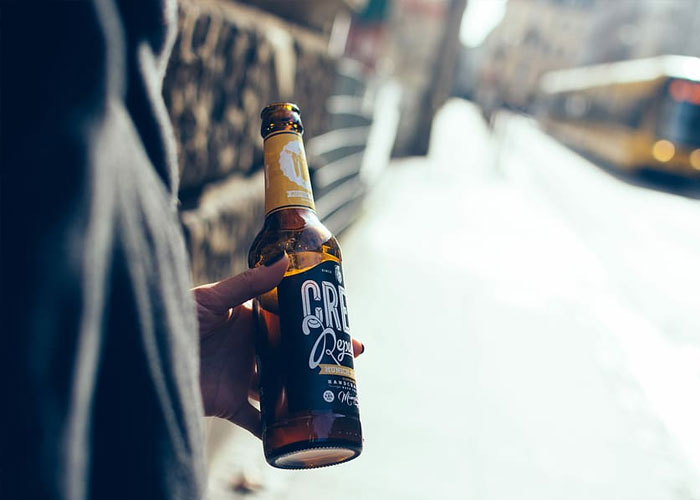 People walking down the streets with a drink in hand, which is actually illegal in the US, I think except for some part of Las Vegas.
People walking down the streets with a drink in hand, which is actually illegal in the US, I think except for some part of Las Vegas.
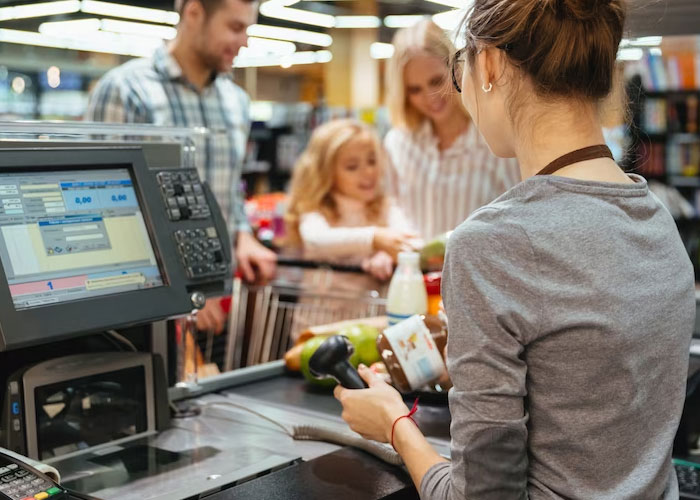 Service workers like cashiers and retail workers don't typically start conversations with people to the extent that they do in America. The more outside of London you go, the more chance there would be of that happening, but definitely not like in America.
Service workers like cashiers and retail workers don't typically start conversations with people to the extent that they do in America. The more outside of London you go, the more chance there would be of that happening, but definitely not like in America.
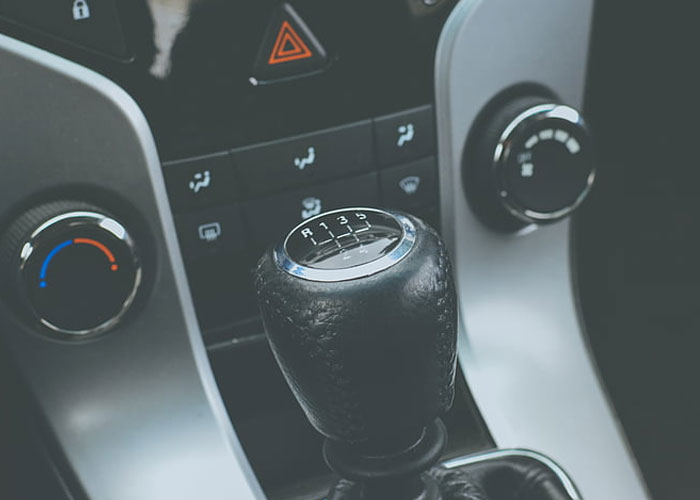 A lot more people drive manuals than automatic in the UK. You have to do your driving test in a manual if you want to drive manual. In the US you can do your driving test in an automatic and still drive a manual.
A lot more people drive manuals than automatic in the UK. You have to do your driving test in a manual if you want to drive manual. In the US you can do your driving test in an automatic and still drive a manual.
So you are allowed to drive a car you don't actually know how to drive. That's pretty stupid
“Another very important aspect is sarcasm/irony - I was told that most probably I am on the ASD spectrum (i.e. autistic) because I can be very direct, to the point, and take things in a black-and-white kind of way. However, paradoxically, possibly thanks to my dad who used to do it all the time and tease me for hours, or thanks to over 20 + years of living in Britain, I can make a lot of ironic comments about reality all the time, which, again non-British people sometimes do not get. We (i.e. Brits) tend to joke that you 'have to literally add #sarcasmtag to every post" so that people who are not from here know you are not being serious. This is kind of a paradox: On the one hand, I am ASD and very direct / to the point, on the other, I can be very, very British.”
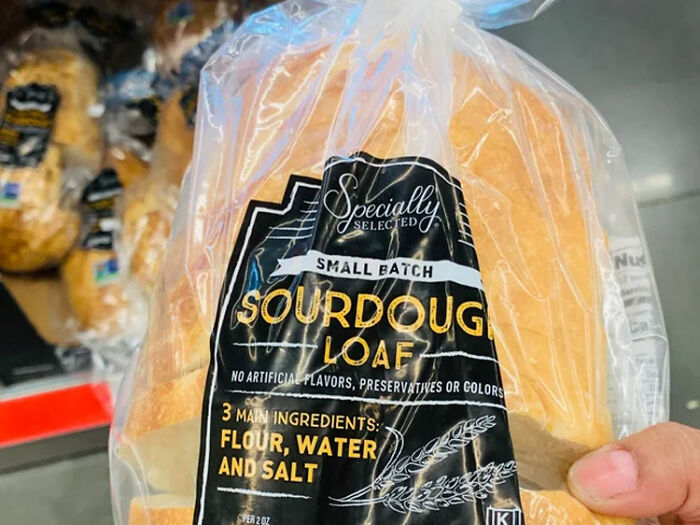 In England, things like bread, pasta, coleslaw don't usually contain added sugar. In the US a lot of these products will usually have added sugar in them.
In England, things like bread, pasta, coleslaw don't usually contain added sugar. In the US a lot of these products will usually have added sugar in them.
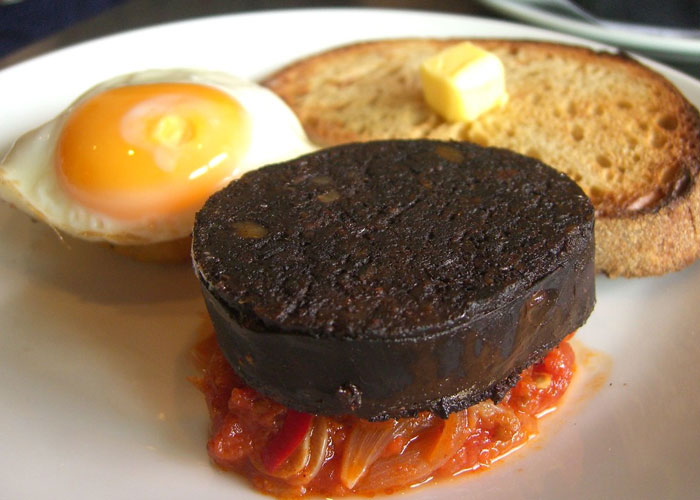 Black pudding which is dried pig's blood that tastes amazing but I've freaked out my American friends saying that though.
Black pudding which is dried pig's blood that tastes amazing but I've freaked out my American friends saying that though.
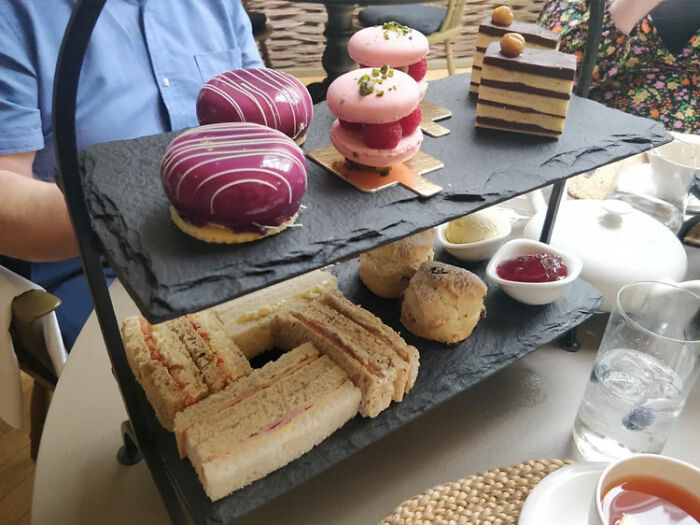 The word tea in England doesn't just mean a cup of tea, it can mean dinner or a snack in some parts of England and then you have things like afternoon tea, cream tea, or tea breaks at work, which all include tea but it's like different settings.
The word tea in England doesn't just mean a cup of tea, it can mean dinner or a snack in some parts of England and then you have things like afternoon tea, cream tea, or tea breaks at work, which all include tea but it's like different settings.
“That, I think, is a huge issue for Americans, and - forgive me - we Brits, often joke that for Americans we have to point out every sarcastic point in everything we say (I know, this is condescending and rude, which, well we often like to be towards our American friends across the pond ;-). There are so many unsaid things that Brits do or insinuate by certain words or expressions, that one would have to compile a whole new dictionary about it. One example is that if you are polite to someone, in an email, you would just say "best wishes" e.g. at the end, but once they annoy you or your email relationship has broken down for some reason, you would simply end it with 'Regards', The amount of anger and aggression in that one word is, indeed, untranslatable to so many non-Brits.”
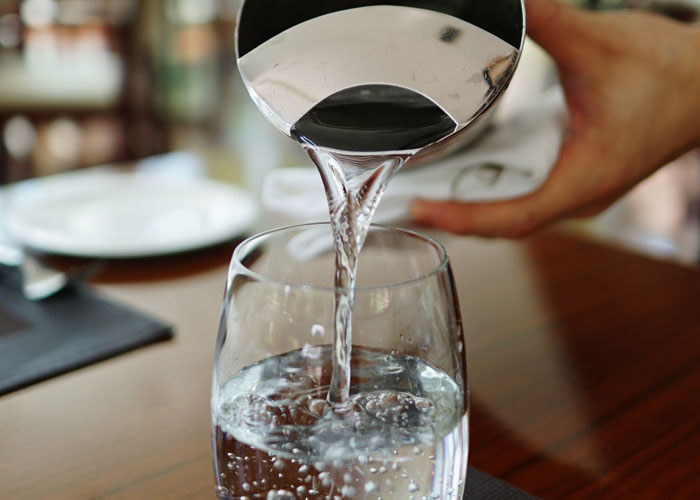 In restaurants, you usually have to clarify that you want tap water instead of still or sparkling, and then the still or sparkling water can come at an extra cost. You also might not be able to get free unlimited refills like at some restaurants in the US.
In restaurants, you usually have to clarify that you want tap water instead of still or sparkling, and then the still or sparkling water can come at an extra cost. You also might not be able to get free unlimited refills like at some restaurants in the US.
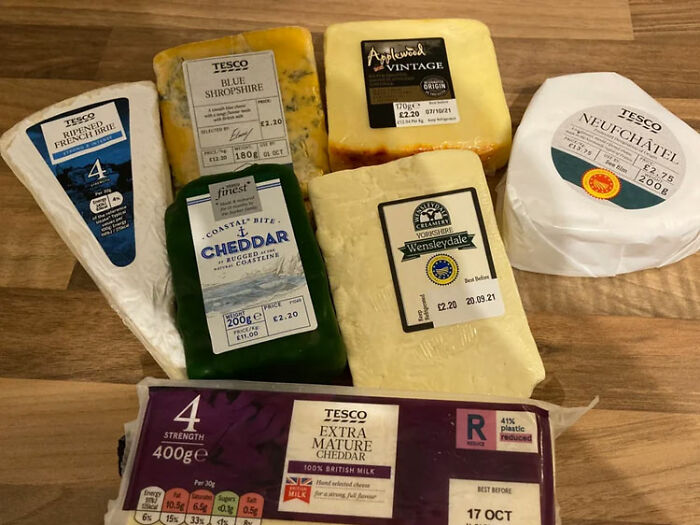 Cheese in England is usually a lot more aged and earthy than it is in America.
Cheese in England is usually a lot more aged and earthy than it is in America.
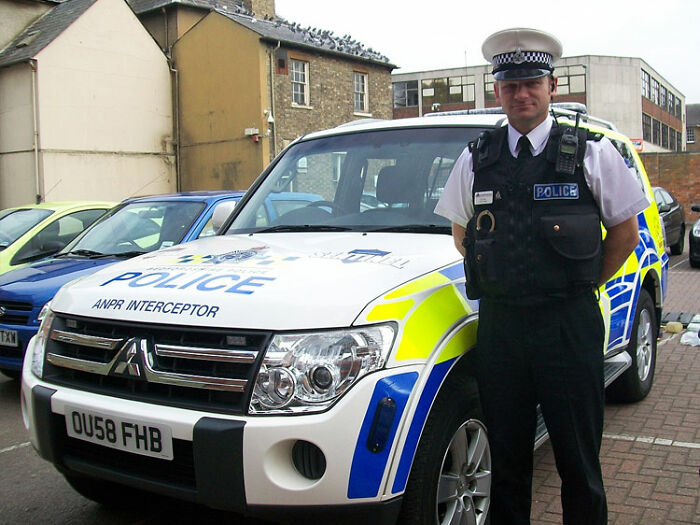 Most police in England won't routinely carry firearms. The majority of the police in America will carry firearms everywhere. Concealed or open carry of any weapon is actually prohibited in England. This was a huge cultural shock for me because in California where I'm from some people will hold a gun in their holster just casually.
Most police in England won't routinely carry firearms. The majority of the police in America will carry firearms everywhere. Concealed or open carry of any weapon is actually prohibited in England. This was a huge cultural shock for me because in California where I'm from some people will hold a gun in their holster just casually.
To round us off, we wanted to hear Maya’s take on what is quintessentially British in her opinion. Having a cup of tea. This is the way we solve 95 % of our problems. Having a cuppa, or a pint. Yes, we do have an issue with alcoholism (that no one wants to talk about... ) but still, this is how we deal with things: come and have a cup of tea (or get drunk about it, see the avoiding strategy once again;). Tea to talk about problems, tea to have a break, tea to discuss ideas over, tea to cry with, tea to accompany you with everything you do. I really need it and I think my fellow Brits do too. It is always going to be a part of our life.” You can find more of her work on Instagram here and Twitter here.
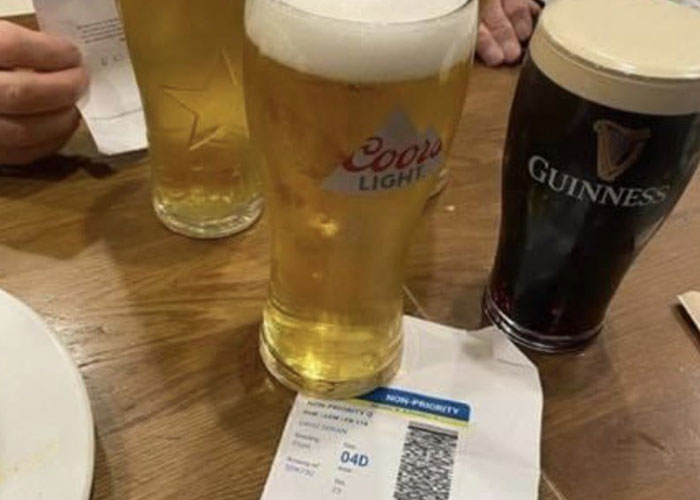 People drinking in the airport at like, any time of the day. I went to Thailand recently, and the Wetherspoons pub at the airport was completely packed at like 5am with people drinking before going on holiday.
People drinking in the airport at like, any time of the day. I went to Thailand recently, and the Wetherspoons pub at the airport was completely packed at like 5am with people drinking before going on holiday.
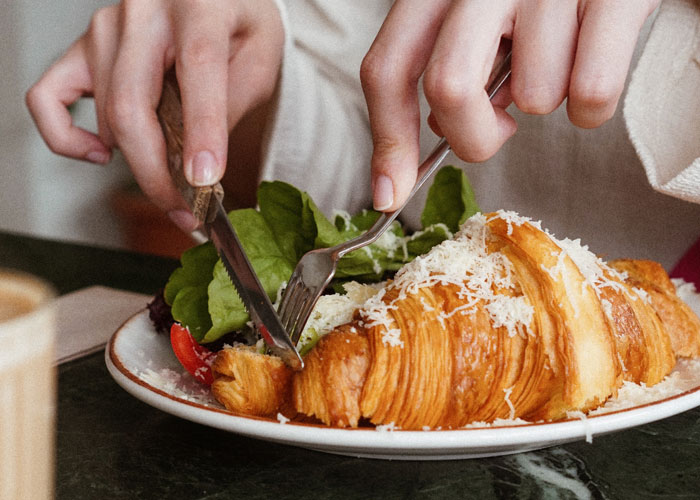 Eating with a knife and fork is usually how people eat in England. You don't just eat with a fork like you usually would in the US. It's also very common to eat pizza with a knife and fork when you're at a restaurant in England, but you would probably never see that in America.
Eating with a knife and fork is usually how people eat in England. You don't just eat with a fork like you usually would in the US. It's also very common to eat pizza with a knife and fork when you're at a restaurant in England, but you would probably never see that in America.
The weird thing in USA is some of them use a knife and fork, they would cut the food with the right hand, put the knife down, and swap the fork to the right hand to pick up the food and put in the mouth. Then swap the fork back to the left hand, pick up the knife on the right hand and cut, then repeat the same actions for the whole meal. It's like he/she doesn't have the ability to use the fork on the left hand to pick up food to eat 🙄
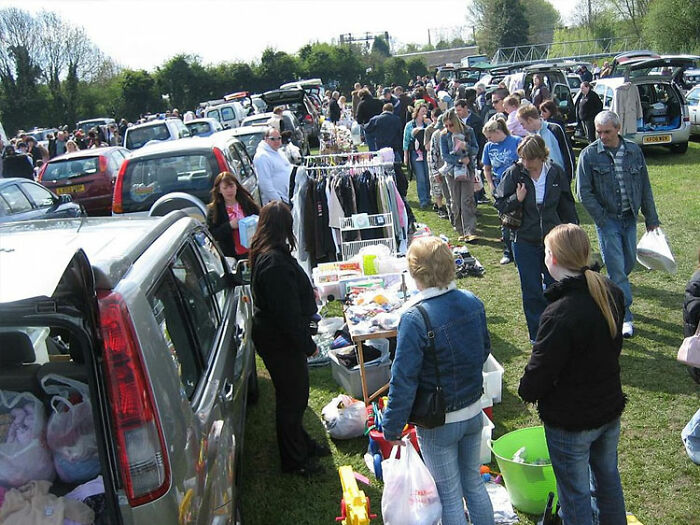 In England instead of garage sales you can find car boot sales. It's the same concept but on a field selling things from your car boot or trunk. I've seen both in both countries but I think car boot sales are more in England and garage sales are more in the US.
In England instead of garage sales you can find car boot sales. It's the same concept but on a field selling things from your car boot or trunk. I've seen both in both countries but I think car boot sales are more in England and garage sales are more in the US.
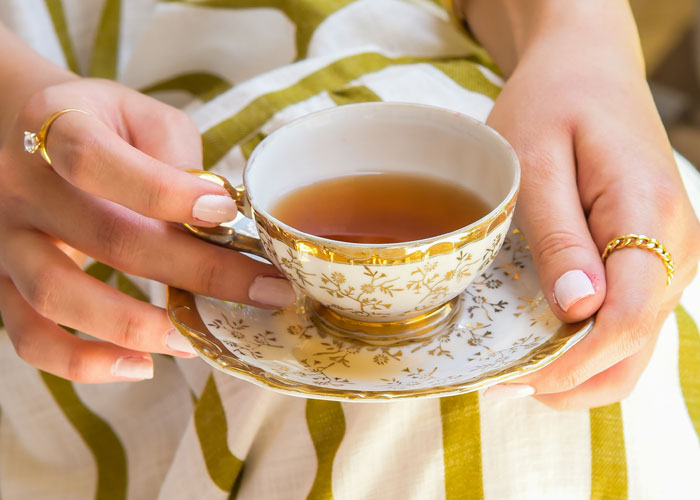 Offering a cup of tea to guests in your home is a really really common gesture in the UK. It's usually black tea and they'll ask if you take it with sugar and/or milk. In the US I feel like it's more soft drinks or water.
Offering a cup of tea to guests in your home is a really really common gesture in the UK. It's usually black tea and they'll ask if you take it with sugar and/or milk. In the US I feel like it's more soft drinks or water.
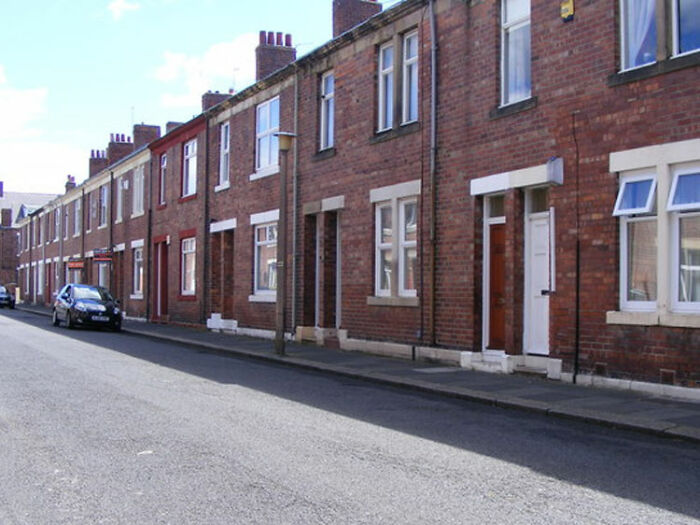 In England, houses and flats or apartments tend to be smaller than houses in the US.
In England, houses and flats or apartments tend to be smaller than houses in the US.
 University degrees typically take longer in the US than they do in the UK. To complete my Bachelor's took three years to complete in England and it usually takes four years to complete a bachelor's in the US.
So overall cost for education in the UK is lower than it is in the US. And from what I understand in England, you don't have to start paying your student loan until you reach a certain income threshold.
But in the US, I think you start paying right after you graduate, but there's some loans that do grace periods.
University degrees typically take longer in the US than they do in the UK. To complete my Bachelor's took three years to complete in England and it usually takes four years to complete a bachelor's in the US.
So overall cost for education in the UK is lower than it is in the US. And from what I understand in England, you don't have to start paying your student loan until you reach a certain income threshold.
But in the US, I think you start paying right after you graduate, but there's some loans that do grace periods.
Just to clarify- there's no such thing as the UK schooling system, it's not the same in each country in the UK. In Scotland you do P1-P7, then S1-S6. Different qualifications too.
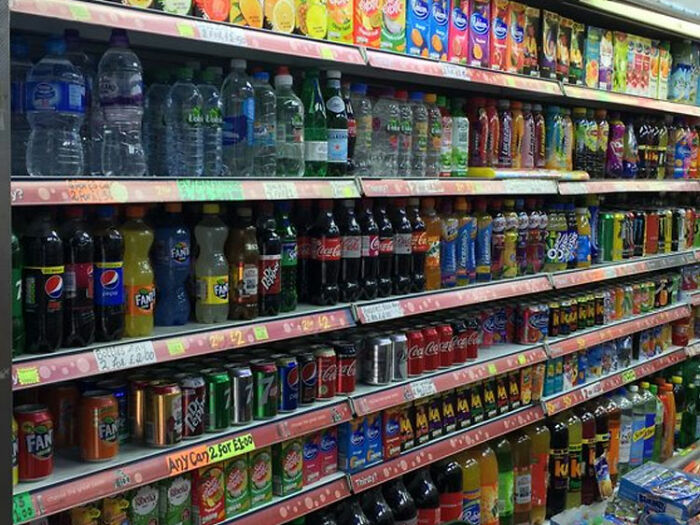 You also can't advertise any unhealthy sugary foods to children in England. Recently there was actually a poster on the tube station that had cake on it that had to be changed because it was advertising unhealthy food. In the US restrictions are a lot stricter than they used to be, but not to this extent.
You also can't advertise any unhealthy sugary foods to children in England. Recently there was actually a poster on the tube station that had cake on it that had to be changed because it was advertising unhealthy food. In the US restrictions are a lot stricter than they used to be, but not to this extent.
The ban of the cake poster was incredibly stupid. It was a poster advertising a West End show called Tony n' Tina's Wedding. So, it had a wedding cake in the poster. But it had to be changed because the wedding cake was supposedly promoting unhealthy food.
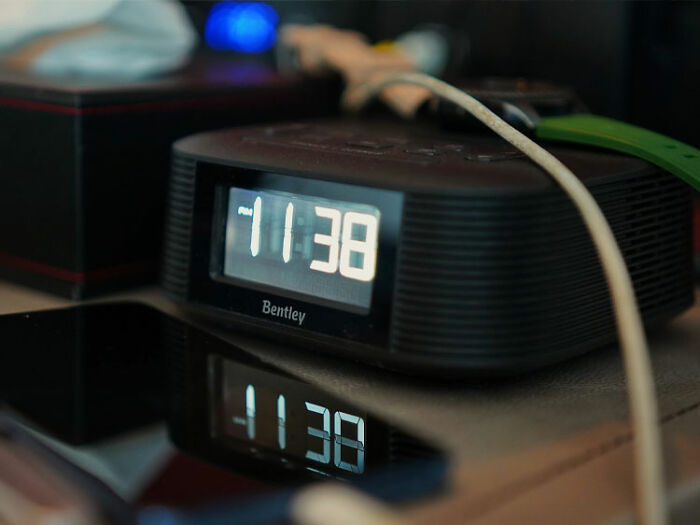 24 hour time or military time is used often in England for schedules, digital clocks, etc. Both 12 and 24 hour clocks are used in England. But from what I've seen, America typically uses the 12 hour clock.
24 hour time or military time is used often in England for schedules, digital clocks, etc. Both 12 and 24 hour clocks are used in England. But from what I've seen, America typically uses the 12 hour clock.
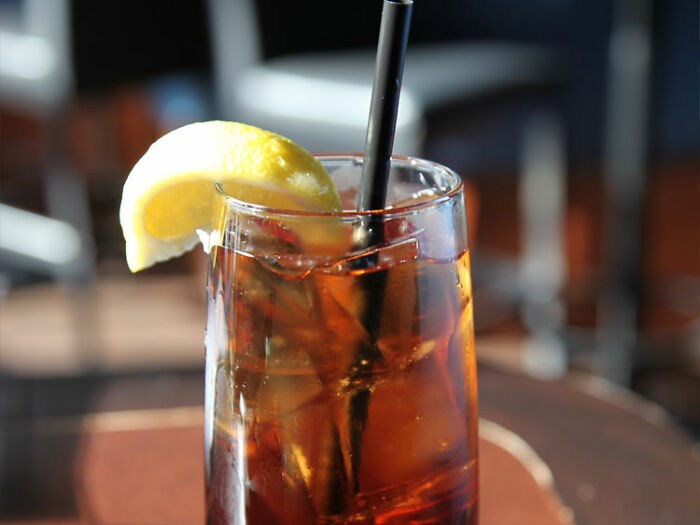 Iced Tea is not a thing in England. In the US iced tea and sweet tea are very popular. I think you can get iced teas from Starbucks in England but it's not very common.
Iced Tea is not a thing in England. In the US iced tea and sweet tea are very popular. I think you can get iced teas from Starbucks in England but it's not very common.
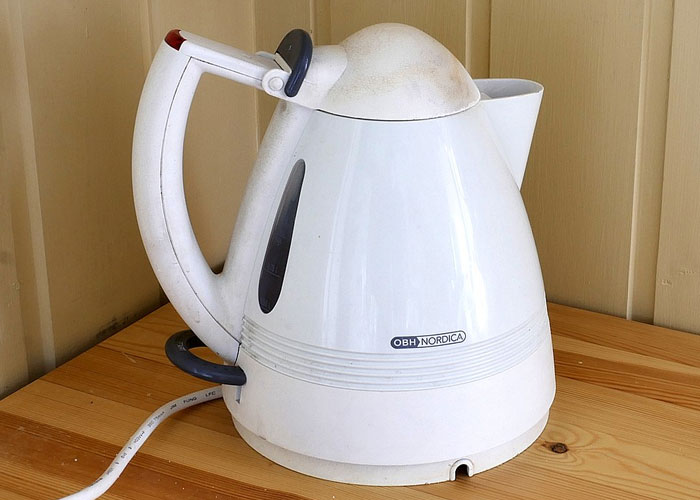 People use electric kettles very regularly in England. When I first moved to England a lot of my American friends didn't know what an electric kettle was. So over the years I think I've seen it become more of a thing in America.
People use electric kettles very regularly in England. When I first moved to England a lot of my American friends didn't know what an electric kettle was. So over the years I think I've seen it become more of a thing in America.
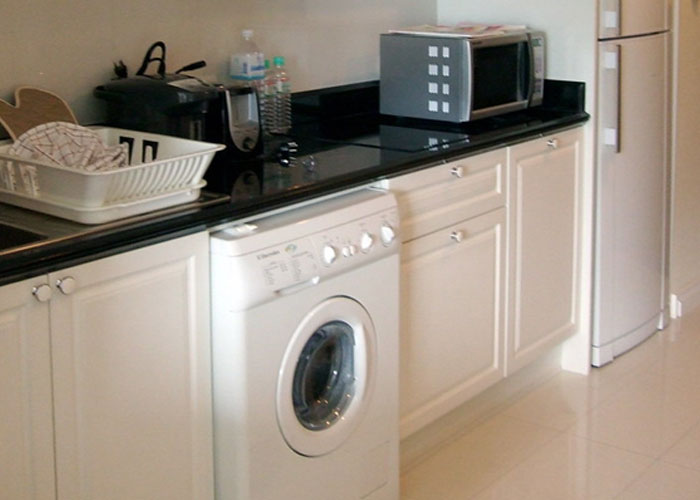 Most people in England have their washing machines in their kitchen, which is very uncommon in the US. Also, most people will use drying racks to dry their clothes in England, whereas in America they use massive industrial dryers.
Most people in England have their washing machines in their kitchen, which is very uncommon in the US. Also, most people will use drying racks to dry their clothes in England, whereas in America they use massive industrial dryers.
My washer and dryer is in my laundry room. I have never seen a massive industrial dryer in a private home.
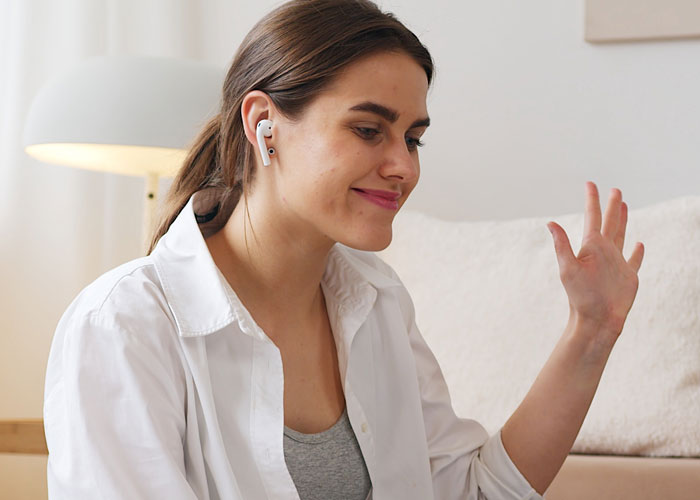 The standard greeting in England is "you're alright?" This confused me so much as an American when I first visited because I thought they were asking me if I was like physically or mentally okay. Typically you just reply with "alright" back. It's sort of like "how are you?" in America being a rhetorical greeting.
The standard greeting in England is "you're alright?" This confused me so much as an American when I first visited because I thought they were asking me if I was like physically or mentally okay. Typically you just reply with "alright" back. It's sort of like "how are you?" in America being a rhetorical greeting.
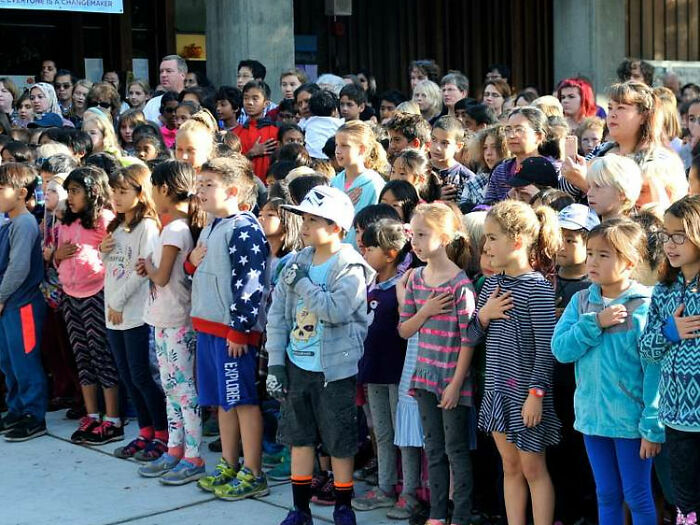 Schools in England don't do anything similar to the Pledge of Allegiance like they would do in schools in America. In general, patriotism isn't as intense as it is in America. So you won't see loads of England flags in front of people's houses like you would see with American flags in America. It's really common for Americans to identify as their heritage instead of their nationality and in England I found it's more common for people to identify with the country they were born in regardless of their heritage.
Schools in England don't do anything similar to the Pledge of Allegiance like they would do in schools in America. In general, patriotism isn't as intense as it is in America. So you won't see loads of England flags in front of people's houses like you would see with American flags in America. It's really common for Americans to identify as their heritage instead of their nationality and in England I found it's more common for people to identify with the country they were born in regardless of their heritage.
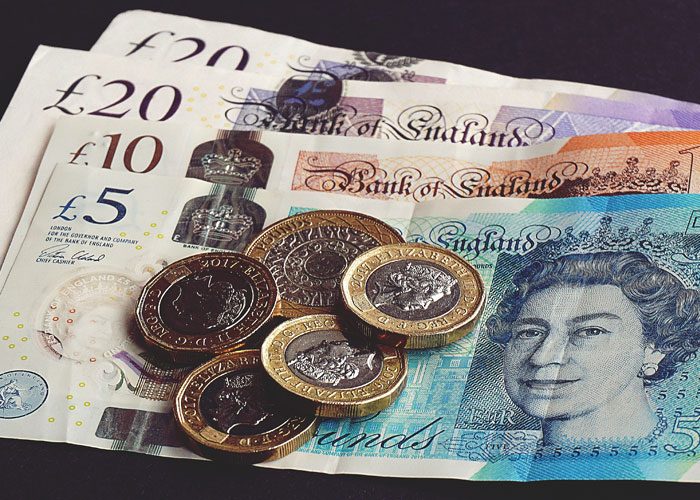 Talking about money in the UK is seen as kind of a taboo, whereas in the US I feel like it's more common.
Talking about money in the UK is seen as kind of a taboo, whereas in the US I feel like it's more common.
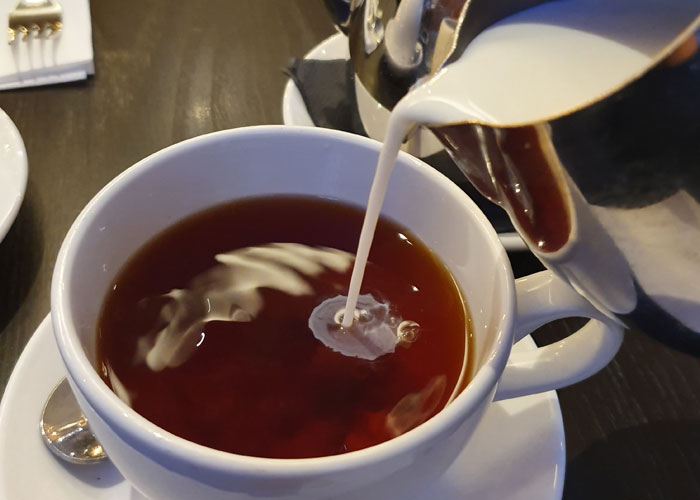 Saying you want tea in England means English breakfast tea, they aren't usually going to ask you if you want peppermint or hibiscus or green tea like they do in the US.
It's usually black tea, and they'll ask how you take it which means whether you take it with like milk or sugar. I feel like in the US they ask if you want it with like cream honey or lemon rather than milk and sugar.
Saying you want tea in England means English breakfast tea, they aren't usually going to ask you if you want peppermint or hibiscus or green tea like they do in the US.
It's usually black tea, and they'll ask how you take it which means whether you take it with like milk or sugar. I feel like in the US they ask if you want it with like cream honey or lemon rather than milk and sugar.
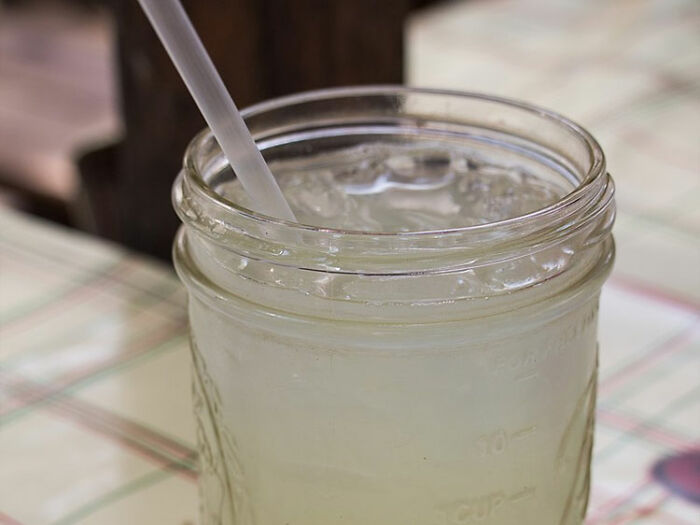 If you order lemonade at a restaurant in England you'll usually get a carbonated lemon flavored drink. In the US you would get what brits call "cloudy lemonade" which is a sugary lemon drink that isn't carbonated.
If you order lemonade at a restaurant in England you'll usually get a carbonated lemon flavored drink. In the US you would get what brits call "cloudy lemonade" which is a sugary lemon drink that isn't carbonated.
Running a dehumidifier in a small room is cheaper than a drier and not much slower.
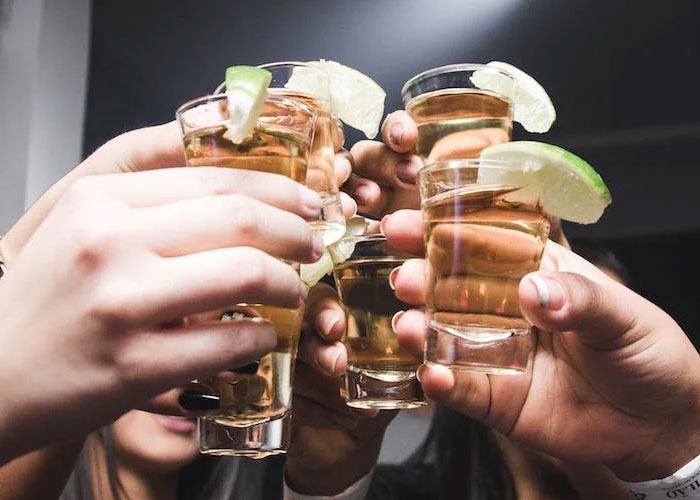 Doing rounds of drinks when you're with a group of people. The expectation is that usually everyone in the group will buy a round drinks for the whole table, but I think in the US you either buy your own drinks or work it out on Venmo after.
Doing rounds of drinks when you're with a group of people. The expectation is that usually everyone in the group will buy a round drinks for the whole table, but I think in the US you either buy your own drinks or work it out on Venmo after.
It really depends on the situation. Drinking with my close friends, we will generally take turns buying rounds for the group. Drinking with some casual work acquaintances, then everyone is usually on their own.
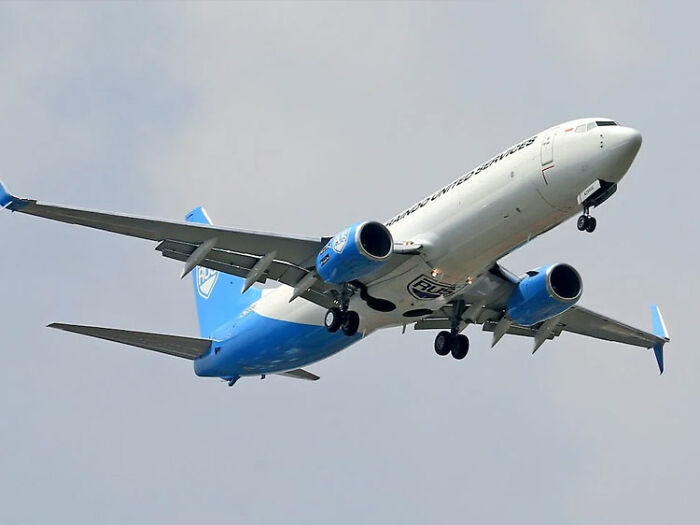 Spring break in the UK isn't the same as spring break in America and I think it's usually called Easter break in the UK, not spring break.
It's not really like a "get a group of people to go to Florida" kind of thing. People usually just go back home and go see friends or family or potentially go on holiday, but I think it's not as common because places you would go on holiday in Europe aren't really warm yet.
So you would just save it for summer whereas in the US spring break is like a huge deal.
Spring break in the UK isn't the same as spring break in America and I think it's usually called Easter break in the UK, not spring break.
It's not really like a "get a group of people to go to Florida" kind of thing. People usually just go back home and go see friends or family or potentially go on holiday, but I think it's not as common because places you would go on holiday in Europe aren't really warm yet.
So you would just save it for summer whereas in the US spring break is like a huge deal.
Spring break in the US is out of control. Hordes of young people descend on popular vacation spot like Cancun bringing the attendant problems with them. Alcohol, drugs, assaults, rapes etc. They trash everything and leave the locals to clean up the mess. Some towns have implemented things like strict curfews to try and control the chaos.
In the US a lot of the cars are huge compared to a lot of the cars in England. You don't see a lot of the huge American pickup trucks also a lot more people own a car in the US compared to England, with 91.7% of households in the US owning at least one car and 45% of households in England owning only one car.
A Venti sized Starbucks is 20 ounce and in the US it's 24 ounce, and then the other two Starbucks sizes - Grande and Tall - are both two ounces smaller than the US. The same goes for a lot of cafes and restaurants with drinks, they tend to be a little bit bigger than in England.
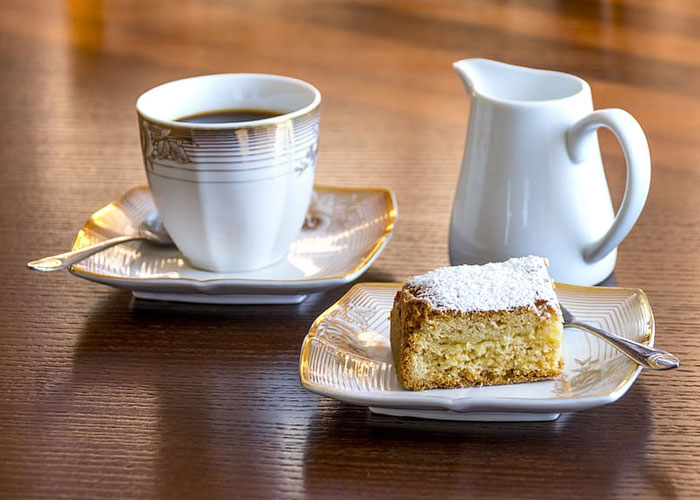 Having cake and a cup of tea or coffee is a lot more common in the UK than it is in the US. If you're out with friends or family in England, you can usually find a cafe that sells cakes, coffee and tea, but I can never find anything similar in the US. There's dessert places and bakeries, but it's a little different.
Having cake and a cup of tea or coffee is a lot more common in the UK than it is in the US. If you're out with friends or family in England, you can usually find a cafe that sells cakes, coffee and tea, but I can never find anything similar in the US. There's dessert places and bakeries, but it's a little different.
You don't have to pay for books in the UK. They'll usually provide them for you in the library but that also means that they can run out. But in the US I think it is more common to buy books for university.
You would never really swipe your card and sign a receipt in England. A lot of places are just insert and contactless.
Chinese takeaway in England isn't what the Chinese delivery would be in the US. For example, most Chinese restaurants in the US will serve orange chicken because it's a very American Chinese dish, but you won't see it as much in England.
Going camping in England isn't usually going to a forest or a campground like in the US. It's usually pitching a tent in a campsite on a field. And instead of huge RVs, you'll see camper vans or caravans.
 In England, you'll have your exams for every term, and that's usually all the exams you'll ever have. Other than that, it's usually your research papers or your dissertation.
But from what it sounds like in the US, you have more quizzes and exams in between your terms.
The British system is also more focused on independent learning. So you're not going to be in for lectures all day every day like you might be in the US, and in England, all your classes already scheduled for your degree. In America, you have to typically book your classes for your degree.
In England, you'll have your exams for every term, and that's usually all the exams you'll ever have. Other than that, it's usually your research papers or your dissertation.
But from what it sounds like in the US, you have more quizzes and exams in between your terms.
The British system is also more focused on independent learning. So you're not going to be in for lectures all day every day like you might be in the US, and in England, all your classes already scheduled for your degree. In America, you have to typically book your classes for your degree.
Not sure what they mean by being in lectures all day every day. US colleges have an average of 15 hours of "classes" per week; the rest is studying, research, paperwork, etc.
Cubicles are like actual rooms in England, they aren't stalls like you would typically see an American public bathroom.
 When you get petrol for your car in England you go inside to pay after you filled your tank. In the US you pay first so you kind of need to know how much gas your car will need.
When you get petrol for your car in England you go inside to pay after you filled your tank. In the US you pay first so you kind of need to know how much gas your car will need.
Or you can pay at the pump which is more and more common. In the USA as I did not want to pay with my card, I paid $60 to fill the hire car up first, then went back in and got my change. Tesco pumps will let you set monetary amount or litres and when you hit that amount, the pump stops.
You probably won't see many people drinking a straight glass of milk in England. In America people do this all the time with almost any meal, not just cookies.
In the UK usually only study one subject whereas in the US you usually do a major and a minor, a major being your primary fields of study and your minor being a secondary concentration.
The following is from a UK guide about University: Choosing a course in one subject is known as a single honours degree. You may also be able to study a minor subject alongside the major subject for a portion of your degree, known as a major/minor honours degree. The degree title names the major subject with the minor subject afterwards, for example Psychology with Criminology, or Law with International Relations.
 Chocolate eggs are really popular in England during Easter and in the US it's more chocolate bunnies that are like the classic, instead of the chocolate egg.
Chocolate eggs are really popular in England during Easter and in the US it's more chocolate bunnies that are like the classic, instead of the chocolate egg.
Cheques are basically obsolete in England. I grew up with my parents using cheques and 81% of firms in the US are still using paper checks to settle some of their bills.
It really felt as if this article was clutching at enough straws to make a thatched roof for several cottages
It really felt as if this article was clutching at enough straws to make a thatched roof for several cottages

 Dark Mode
Dark Mode 

 No fees, cancel anytime
No fees, cancel anytime 


















































